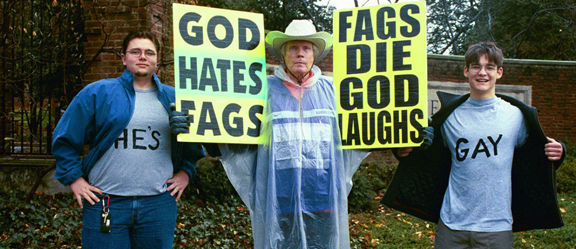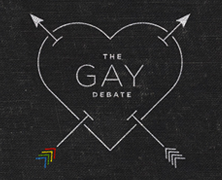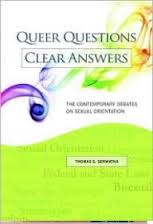There may perhaps be no more polarizing issue in American culture today than the issue of homosexuality. Without a doubt, public opinion on the subject is shifting: for some, this is a sign of “progress” while for others (those who believe in an enduring moral order often referred to as “traditional values”) it is a trend in social liberalization that will necessitate a course correction.
Of course, as one might expect, there is bullying and bigotry and intolerance on both sides of this debate. There is usually far more heat than light. There has been a gross absence of civility. There has been too much yelling and not enough listening; too much mockery and not enough thoughtful respect for other people, even as we hold differing views on a subject so personal. It would be comical if it were not so deeply sad.
In the midst of the belligerents on both ends of the spectrum of the debate, one is reminded of Aristotle’s famous axiom: “It is the mark of an educated mind to entertain an idea without accepting it.” One is also reminded of Thomas Jefferson’s appeal in his famous letter on civil liberties: “For God’s sake, let us hear both sides if we choose!” Indeed, civil discourse begins in one’s acceptance of these two principles.
Beyond the challenge of civil discourse, we are now witnessing quite remarkable restrictions relating to how one can act with regard to their beliefs about this subject. Can a private photographer decline to photograph a gay marriage? Can a media personality state his support of the traditional view of marriage and keep his job? Can a corporate executive personally support a political candidate and legislation that upholds the standing law about marriage without being fired?
Mozilla CEO Brendan Eichs just found out. Prominent gay activist, Andrew Sullivan, explained the situation this way. “The guy who had the gall to express his First Amendment rights and favor Prop 8 in California by donating $1,000 has just been scalped by some gay activists. After an OKCupid decision to boycott Mozilla, the recently appointed Brendan Eich just resigned under pressure….”
Sullivan then continued: “Will he now be forced to walk through the streets in shame? Why not the stocks? The whole episode disgusts me – as it should disgust anyone interested in a tolerant and diverse society. If this is the gay rights movement today – hounding our opponents with a fanaticism more like the religious right than anyone else – then count me out. If we are about intimidating the free speech of others, we are no better than the anti-gay bullies who came before us.”
People like Andrew Sullivan, who is himself gay, genuinely desire to understand and discuss this issue in the round. They appreciate an honest attempt at civil discourse. This course represents an effort to explain the socially conservative perspective without vitriol and senseless rhetoric – in order to respond to the Jeffersonian challenge that has been expressed by so many Thinker Education students of varying political and religious perspectives: “For God’s sake, let us hear both sides if we choose!”
With that in mind, the under-represented point of view these days (indeed, in some cases the suppressed point of view), is what we have tried to articulate in this Thinker Education course experience. May it lead to a better conversation with people you know and love, people who you live with and work with – all of whom are “endowed by their Creator,” as Jefferson also observed, with a uniqueness and value and giftedness that is greatly needed in our world.
Version 1.5










